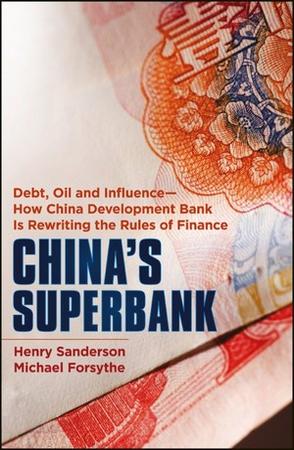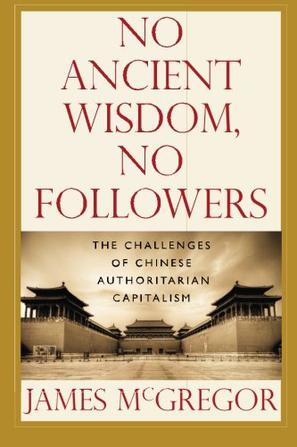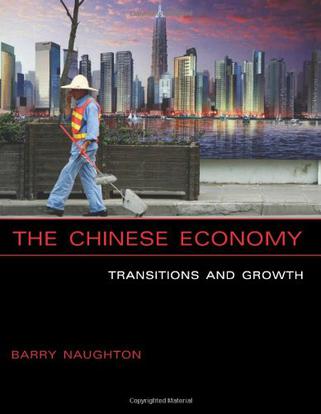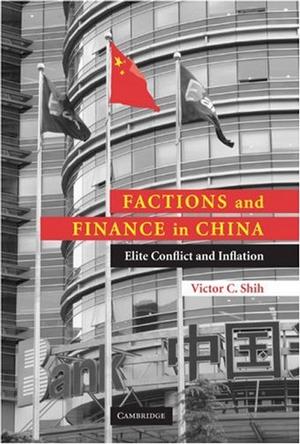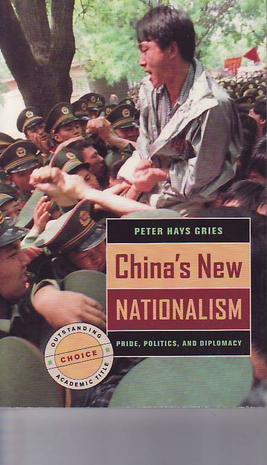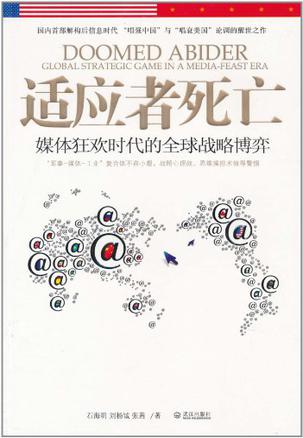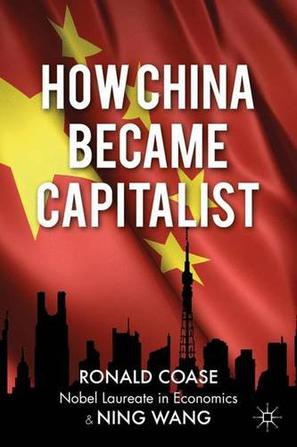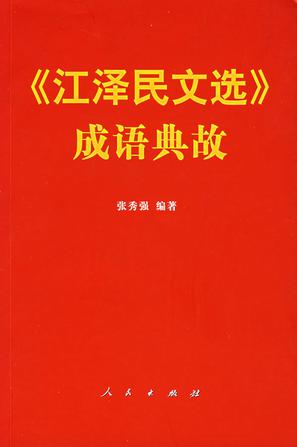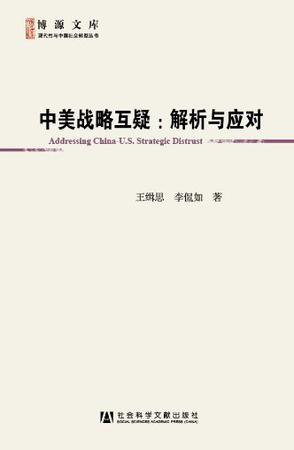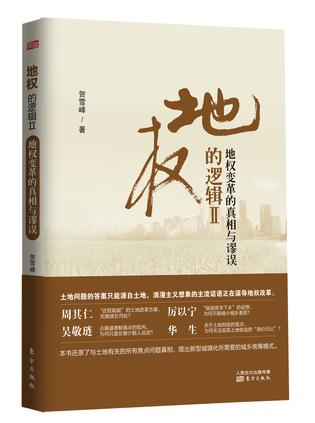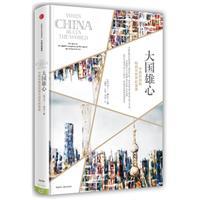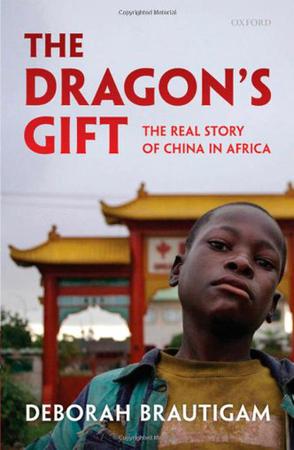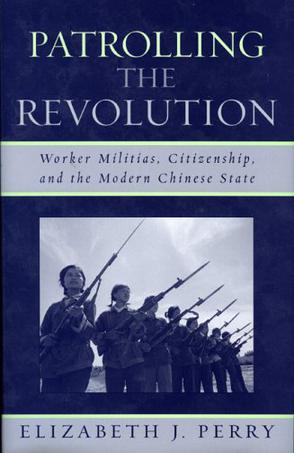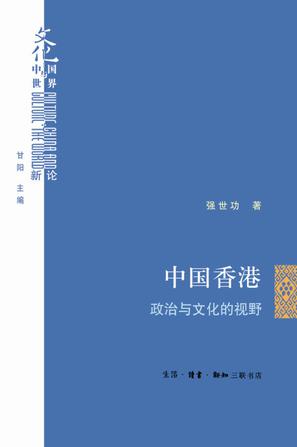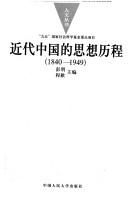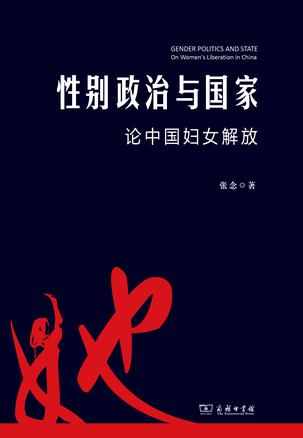欢迎来到相识电子书!
标签:中国
-
China's Superbank
China's rise as a global economic superpower, the success of its top companies, and its continuing domestic boom is intricately tied to China Development Bank (CDB). This less-than-transparent institution, which is wholly owned by the Chinese government, has become the financial enabler of this nation's growth and is arguably the most powerful bank in the world. While development banks have long existed to finance political projects, infrastructure, and other initiatives, nothing comes close to CDB in scope. In China's Superbank, authors Henry Sanderson and Michael Forsythe—both Bloomberg journalists working in Beijing—combine on-the-scene reporting and interviews from across the world with numbers crunched from Chinese bond prospectuses to put CDB in perspective, and help you understand the economic phenomenon that is China. Along the way, you'll not only become familiar with the growing accomplishments and influence of CDB, but you'll also gain valuable insights into the darker side of this political-financial institution—one that has never had to answer to anyone apart from its state shareholders. You'll also discover how China's seemingly unstoppable banking system could potentially be saddled with bad debt from trillions of yuan invested in projects with questionable economic value both at home and abroad. Throughout the book, the authors: Explore CDB's hallmark innovation—the system of local government finance—which has transformed China's landscape in just over a decade by pumping trillions of yuan into various domestic projects Profile Chen Yuan, the Chairman of CDB since 1998, and discuss how he's been instrumental in reasserting the Communist Party in China's economy, while managing to preserve enough independence from the government to make decent investment decisions and function as a commercially driven institution Analyze CDB's China-Africa Development Fund—China's largest private equity fund investing in Africa—and its attempts to stimulate manufacturing in Ethiopia, and CDB's lending to Ghana Address CDB's work to secure a steady flow of oil and gas to China through loans-for-energy deals around the world, particularly to Venezuela Examine CDB's lines of credit that have helped new Chinese firms in telecom and alternative energy win significant global projects, as well as how the bank is developing a new form of private equity financing through CDB Capital. As China's influence continues to grow around the world, many people are asking how far it will extend. China's Superbank addresses this vital question, looking at the institution at the heart of its growth. Praise for China's Superbank "The phenomenal economic rise of China and its growing global role have been driven by a unique mix of political and economic actors. China Development Bank has been at the center of much of this growth especially as the principal banker in China's overseas commodity investments. Henry and Michael's timely book, China's Superbank, details for the first time the role that CDB has played under the focused leadership of its Chairman Chen Yuan. This book is essential reading for anyone wanting to understand how China funds its growth but it also raises important questions as to whether CDB's strategy will be sustainable over the long term." —Fraser Howie, Managing Director, CLSA Singapore and co-author of Red Capitalism "Combining in-depth knowledge of China with hard-nosed economic analysis and first-rate journalism, Sanderson and Forsythe have written an astonishingly detailed yet lively portrait of China's muscular state capitalism. This important work tells us in concrete terms how China is expanding its influence around the world, not through military force, but through writing checks. This is a must-read for all those who take an interest in China's rising influence in the world—and its increasingly vulnerable financial system." —Victor Shih, Associate Professor, Northwestern University "In China's Superbank Henry and Michael shed a much-needed light on the operations and people behind China Development Bank, an apparent policy bank that in a brief decade has in many ways surpassed the power and functions of the country's Ministry of Finance. The tale of how this formerly moribund institution ignited China's local debt crisis while financing China's foreign policy initiatives is a must for anyone seeking to understand China's opaque financial system." —Carl Walter, former COO of JP Morgan China, independent consultant and co-author of Red Capitalism "American Cabinet members say the global reach and growth of China Development Bank keeps them up at night. After reading this book, they might not go to sleep at all. For all the tsunami of news about China's rise in recent years, the country's political and financial institutions remain vastly undereported and little understood. Mike Forsythe and Henry Sanderson's book helps correct that with remarkable detail and insights about the bank that laid the financial foundations for China's economic miracle at home, before then finding a formula to spread its money abroad." —Richard McGregor, Financial Times reporter and author of The Party -
NO ANCIENT WISDOM, NO FOLLOWERS
In the past three decades, China has risen from near collapse to a powerhouse -- upending nearly every convention on the world stage, whether policy or business. China is now the globe’s second largest economy, second largest exporter, a manufacturing machine that has lifted 500 million of its citizens from poverty while producing more than one million US dollar millionaires. Then why do China’s leaders describe the nation’s economic model as “unstable and unsustainable”? Because it is. James McGregor has spent 25 years in China as a businessman, journalist and author. In this, his latest highly readable book, he offers extensive new research that pulls back the curtain on China’s economic power. He describes the much-vaunted “China Model” as one of authoritarian capitalism, a unique system that, in its own way, is terminating itself. It is proving incompatible with global trade and business governance. It is threatening multinationals, which fear losing their business secrets and technology to China’s mammoth state-owned enterprises. It is fielding those SOEs – China’s “national champions” -- into a global order angered by heavily subsidized state capitalism. And it is relying on an outdated investment and export model that’s running out of steam. What has worked in the past, won’t work in the future. The China Model must be radically overhauled if the country hopes to continue its march toward prosperity. The nation must consume more of what it makes. It must learn to innovate. It must unleash private enterprise. And the Communist Party bosses? They must cede their pervasive and smothering hold on economic power to foster the growth, and thus social stability, that they can’t survive without. Government must step back, the state-owned economy must be brought to heel, and opportunity must be freed. During the Tang Dynasty, an official in the imperial court observed: “No ancient wisdom, no followers.” He was lamenting that regime was headed alone into dangerous and uncharted waters without any precedent for guidance. Again today – as McGregor makes clear – this is China’s greatest challenge. -
问题域外的问题
本书并不是一部讨论方法论的著作,而是偏重于从方法论的角度来审视现代西方哲学家的哲学理论的著作。 总之,从来没有纯粹的本体论、认识论或方法论,有的只是偏重于从本体论、认识论或方法论的角度来讨论哲学。弄明白这一点,就可以免去许多无谓的争论了。 -
未来三十年:改革新常态下的关键问题
十八大绘就了全面深化改革的蓝图,两年多的时间里,取得了很多成效,也出现了新的问题,比如经济进入新常态,增速比我们想象的还要再低一些;运动式反腐,不断揪出大老虎,如何制度化,从而预防和遏制腐败,避免“亡党亡国“?目前的改革遇到了哪些新的风险?“一带一路”这个新战略的经济逻辑是什么,怎么有助于中国崛起?中国如何处理和周边国家的关系,美国重返亚洲,是在孤立中国吗? 改革和发展的顶层设计固然重要,但如果不执行或执行不到位,停留在纸上文件,只会导致更多的麻烦。政府每年有什么改革新进展,有什么新的举措要完善,将成为未来几年观察中国的焦点。中国未来三十年的走向,取决于如何面对新常态这一阶段的关键问题以及采取的行动。 在这些新秩序、新挑战、新矛盾的面前,我们该如何面对并积聚新的力量,从而更从容地面对变化的世界?郑永年编著的《未来三十年》就是试图通过分析和回答这些新挑战、新矛盾、新力量出现的原因、目前的情势,以及应对的策略,对我们无法确定的未来给予更多的指导。 -
The Chinese Economy
This comprehensive overview of the modern Chinese economy by a noted expert on China's economic development offers a quality and breadth of coverage not found in any other English-language text. In The Chinese Economy, Barry Naughton provides both an engaging, broadly focused introduction to China's economy since 1949 and original insights based on his own extensive research. The book will be an essential resource for students, teachers, scholars, business people, and policymakers. It is suitable for classroom use for undergraduate or graduate courses.After presenting background material on the pre-1949 economy and the industrialization, reform, and market transition that have taken place since, the book examines different aspects of the modern Chinese economy. It analyzes patterns of growth and development, including population growth and the one-child family policy; the rural economy, including agriculture and rural industrialization; industrial and technological development in urban areas; international trade and foreign investment; macroeconomic trends and cycles and the financial system; and the largely unaddressed problems of environmental quality and the sustainability of growth.The text is notable also for placing China's economy in interesting comparative contexts, discussing it in relation to other transitional or developing economies and to such advanced industrial countries as the United States and Japan. It provides both a broad historical and macro perspective as well as a focused examination of the actual workings of China's complex and dynamic economic development. Interest in the Chinese economy will only grow as China becomes an increasingly important player on the world's stage. This book will be the standard reference for understanding and teaching about the next economic superpower. -
Factions and Finance in China
How does the Chinese banking sector really work? Nearly all financial institutions in China are managed by members of the Communist Party, yet economists and even those who engage the Chinese banking sector simply do not have a framework with which to analyze the links between banking and politics. Drawing from interviews, statistical analysis, and archival research, this book is the first to develop a framework with which to analyze how elite politics impact both monetary and banking policies. This book serves as an important reference point for all subsequent work on Chinese banking. -
China's New Nationalism
Three American missiles hit the Chinese embassy in Belgrade, and what Americans view as an appalling and tragic mistake, many Chinese see as a "barbaric" and intentional "criminal act," the latest in a long series of Western aggressions against China. In this book, Peter Hays Gries explores the roles of perception and sentiment in the growth of popular nationalism in China. At a time when the direction of China's foreign and domestic policies have profound ramifications worldwide, Gries offers a rare, in-depth look at the nature of China's new nationalism, particularly as it involves Sino-American and Sino-Japanese relations--two bilateral relations that carry extraordinary implications for peace and stability in the twenty-first century. Through recent Chinese books and magazines, movies, television shows, posters, and cartoons, Gries traces the emergence of this new nationalism. Anti-Western sentiment, once created and encouraged by China's ruling PRC, has been taken up independently by a new generation of Chinese. Deeply rooted in narratives about past "humiliations" at the hands of the West and impassioned notions of Chinese identity, popular nationalism is now undermining the Communist Party's monopoly on political discourse, threatening the regime's stability. As readable as it is closely researched and reasoned, this timely book analyzes the impact that popular nationalism will have on twenty-first century China and the world. -
适应者死亡
《适应者死亡:媒体狂欢时代的全球战略博弈》从“媒体话语”这一视角入手,阐释了大国发展中暗潮涌动的一系列看不见的陷阱;同时揭示了中西方媒体不对称现实以及西方媒体与军方、政府的复杂瓜葛,通过剖析近年来海外媒体围绕“中国威胁论”、“中国独秀轮”、“中国责任论”等话题,进行连环出击。在认知空间误导中国战略的事实,对媒体狂欢时代全球大国战略博弈指向、韬略及对策作了深度分析。其目的在于警醒国人,不要被以美国为首的西方媒体所营造的假象所迷惑,要清楚中国现状,制定适合中国国情的战略方针。 《适应者死亡:媒体狂欢时代的全球战略博弈》结构严谨,资料翔实,论述精妙,见解独到,实为当代时政论著中的佼佼者。更兼之作者的行文严谨中带有生动,深入中不乏风趣,读之令人拍案叫绝,思之令人回味,是国内首部解构后信息时代“唱强中国”与“唱衰美国”论调的醒世之作。 -
How China Became Capitalist
This book examines the extraordinary events that led to China's transformation from a close agrarian socialist economy to becoming an invincible manufacturing powerhouse of the global economy. -
《江泽民文选》成语典故
《〈江泽民文选〉成语典故》收录了《江泽民文选》中引用的近千条成语典故,并作了通俗易懂、深入浅出的说明。全国人大常委会副委员长、著名语言学家许嘉璐为此书作序。 -
中美战略互疑
《博源文库·现代性与中国社会转型丛书:中美战略互疑解析与应对》中提到的“战略互疑”,是指双方在长远意图方面的互不信任。这一问题已经成为中美关系的核心关切。2012年2月15日,中国国家副主席习近平在华盛顿发表的主要政策演说中指出,战略互信问题在中美关系的主要问题中占据首要地位。 北京和华盛顿均寻求建立一种长远的建设性伙伴关系。此外,中美关系是成熟的。双方能够了解彼此在所有重大问题上的立场,并进行广泛的交流。最高级别的领导人会晤相对频繁,每年两国政府机构会举行60多场政府间对话。但以往的交流经验和广泛的交流活动,却未能使任何一方建立对对方长远目标的信任;甚至可以说,缺乏互信的问题正日趋严重。不信任本身即具有缓慢的破坏性,而在此基础上形成的态度和采取的行动,反过来又会加剧不信任。由于缺乏信任,双方领导人很难确定是否已经了解对方对未来中美关系的深层次思考。 -
地权的逻辑Ⅱ
房价居高不下、拆迁此起彼伏,腐败接连不断,土地制度因此被一次次推向舆论的风口浪尖,变革地权几乎成了泄洪的唯一通道。此时,我们希望听到和看到的,往往是自己想要的“真相”,而不是基于土地自身逻辑常识的真相,谬误便由此而生。 本书则是在全面认识土地属性,尊重土地制度历史渊源与现实语境的前提下,提供一种与时下主流的“黑板经济学”的“常识”大为不同的新常识,并从另一个视角还原了土地财政、征地拆迁等焦点问题的真相,并提出新型城镇化所需要的城乡统筹模式。 土地作为最重要的资源,关乎每个人的利益,也是几乎所有热点问题、焦点问题的“根”,但地权并不浪漫,地权变革如果迷信“浪漫主义想象”的逻辑推演,结果可能是中国社会转型之殇。 -
权力与公正
赵旭东,1965年生于河北省承德市,祖籍浙江省桐庐县。1992年毕业于河北师范大学,获心理学硕士学位,1998年毕业于北京大学社会学系,获法学博士学位,研究方向为社会人类学。现任职于北京大学社会学系、北京大学人类学研究所,同时受聘于南开大学历史学院,兼任客座研究人员。已发表研究论文二十余篇。 -
大国雄心
过去200多年的时间,我们一直生活在西方制造的世界中,生活在一个“西方”概念等同于“现代”概念的时代里。然而21世纪将是一个完全不同的时代,随着非西方国家力量的迅速兴起,西方将不再占据主导地位,一国实现现代化的方式也将不再以效仿西方模式为主。中国将成为全球竞技场上的核心角色,并主导世界秩序的重新构建。 马丁·雅克认为,从现代化的发展模式来看,中国绝不会变成一个西方式社会,它将保持高度鲜明的中国特色。国家规模和国民精神的大陆性,占世界总人口五分之一的人口数量,以及该国的民族特性、态度和价值观,都使中国将以非西方化的“文明国家”方式影响着世界,而其惊人的发展速度也标志着西方的“民族国家”在全球主导地位的终结。 这部极富远见的原创著作,首次从包括文化传播、民族性、社会生活、语言形成、传统价值观念等更为深层面上解释了中国作为全球性力量到来的意义。以西方学者的深邃且客观的目光重新审视了现代中国和世界秩序。 -
The Dragon's Gift
Is China a rogue donor, as some media pundits suggest? Or is China helping the developing world pave a pathway out of poverty, as the Chinese claim? In the last few years, China's aid program has leapt out of the shadows. Media reports about huge aid packages, support for pariah regimes, regiments of Chinese labor, and the ruthless exploitation of workers and natural resources in some of the poorest countries in the world sparked fierce debates. These debates, however, took place with very few hard facts. China's tradition of secrecy about its aid fueled rumors and speculation, making it difficult to gauge the risks and opportunities provided by China's growing embrace. This well-timed book, by one of the world's leading experts, provides the first comprehensive account of China's aid and economic cooperation overseas. Deborah Brautigam tackles the myths and realities, explaining what the Chinese are doing, how they do it, how much aid they give, and how it all fits into their "going global" strategy. Drawing on three decades of experience in China and Africa, and hundreds of interviews in Africa, China, Europe and the US, Brautigam shines new light on a topic of great interest. China has ended poverty for hundreds of millions of its own citizens. Will Chinese engagement benefit Africa? Using hard data and a series of vivid stories ranging across agriculture, industry, natural resources, and governance, Brautigam's fascinating book provides an answer. It is essential reading for anyone concerned with China's rise, and what it might mean for the challenge of ending poverty in Africa. -
Patrolling the Revolution
This pioneering study explores the role of working-class militias as vanguard and guardian of the Chinese revolution. The book begins with the origins of urban militias in the late nineteenth century and follows their development down to the present day. Elizabeth Perry focuses on the institution of worker militias as a vehicle for analyzing the changing (yet enduring) impact of China's revolutionary heritage on subsequent state-society relations. She also incorporates a strong comparative perspective, examining the influence of revolutionary militias on the political trajectories of the United States, France, the Soviet Union, and Iran. Based on exhaustive archival research, the work raises fascinating questions about the construction of revolutionary citizenship; the distinctions among class, community, and creed; the open-ended character of revolutionary movements; and the path dependency of institutional change. All readers interested in deepening their understanding of the Chinese Revolution and in the nature of revolutionary change more generally will find this an invaluable contribution. -
中国香港
本书是作者对香港以及通过香港对中国问题的思考,他想追问的是“中国”究竟意味着什么。全书共13章,从2007年第9期开始以“香江边的思考”为副题在《读书》不定期连载,引起广泛的关注和讨论。 “本书记载了我对香港及通过香港对中国问题的思考,我想追问的是:“中国”究竟意味着什么?……我希望把香港作为中国的中心问题来思考,将其看作是理解中国的钥匙,因为它一方面生动地展示了近代以来中西文化与政治之间的较量,另一方面也暗含着中国文明与西方文明的最根本的不同。” ——强世功 -
近代中国的思想历程
这是一部描述近代中国社会思潮的起源、发展和更迭过程与规律的专著。中国近代社会思潮作为特定阶段、阶层、集团的社会心理、人文观点及其理论意识形态的总和是中国内部降外部的多种历史脉络综错交织的产物,核心是以国家观为主轴的政治理论。百年思潮经过鸦片战争前后、甲午战争之后、五四运动前后和本世纪三四十年代的变化和更迭,其主流意识形态由企图重建帝国秩序、建立资产阶段民族国家发展到对人民民主专政国家制度 -
中国国家能力报告
《中国国家能力报告》中文提要 一国的现代化过程,本身就是一个需要动员全社 会的人力资源、物力资源的过程,也是一个不断强化 国家能力的过程。为了顺应现代化的要求,动员各种 社会资源,团结各种社会力量,建立稳定的经济社会 秩序,形成全体国民对现代化的共识,维持整个民族 团结和国家统一,都迫切需要一个更具权威和强有力 的中央政府,不断提高国家汲取财政能力,加速本国 的现代化进程。 国家(其代表为中央政府)是经济发展、政治变 革、社会转型和国际关系的主要指导者和驱动者。提 高国家能力,就是提高中央政府控制宏观经济的能力, 推进改革与开放的能力,以及加速工业化与现代化的 能力。 本报告旨在探讨中国国家能力变化,分析中央政 府在市场经济转变过程中的主导作用。这是一项中国 国情分析的研究成果,是系统研究中国国家能力与国 民经济发展的专题研究报告。该项研究受中国科学院 资助,作者在美国耶鲁大学合作完成。 中国经济改革深刻地影响了整个社会的政治经济 变化。尽管这场改革是以渐进方式推进,但是它对中 国社会变化的影响超过历史上任何一个时期,它对中 国经济发展的作用也超过历史上任何一场革命。 本报告所关注的问题是,这场改革对中国国家能 力变化将产生什么样的影响?在向市场经济转变过程 中,究竟是削弱中央政府作用,还是强化中央政府作 用?如果中国市场经济转变是以中央政府为主导,那 么,中央政府应当发挥哪些作用,地方政府应具有什 么职能?在一个人口众多、幅员辽阔、经济发展极不 平衡的大国中,如何建立一种稳定的规范的中央和地 方关系?如何在市场经济转变和现代化赶超过程中,加 强中央政府的主导作用? 对上述问题的分析和研究构成了本报告的主要内 容。同以往的国情分析报告一样,本报告的主要观点 和基本结论是依据作者对中国统计数据的计算分析以 及国际比较分析而得出的。客观性与公正性是本报告 研究的基本原则。同时,在阐述过程中,本报告力求 观点明确,论证有据。报告中也吸收了国际学术界有 关国家能力的研究成果。 国家汲取财政能力是最重要的国家能力 国家能力是指国家(中央政府)将自己的意志、目 标转化为现实的能力。国家能力包括四种:汲取财政 能力、宏观调控能力、合法化能力以及强制能力。其 中国家汲取财政能力是最重要的国家能力,也是实现 其他国家能力的基础。 国家能力对一国工业化进程产生着深刻影响。一 个国家的经济越落后,工业化起步越晚,国家在工业 化过程中所发挥的作用就愈大。因此,对于各国来讲, 提高国家能力特别是提高国家汲取财政能力,也就成 为最重要的国家能力,它是实现其他各项国家能力的 基础。 欠发达国家提高国家汲取财政能力是尤为重要 的。它是摆脱贫困落后,实现经济起飞,缩小与发达 国家之间差距的最主要的条件之一。 强化国家能力,就是强化国家动员和汲取社会资 源的能力。反映国家汲取财政能力的最主要指标:一 是财政收入占国民收入的比重;二是中央财政收入占 国民收入的比重。前者反映了政府动员汲取的社会资 源占总的社会资源的份额,后者反映了中央政府动员 汲取的社会资源占总的社会资源的份额。 影响国家汲取财政能力的因素包括发展因素、制 度因素以及政策因素。当该国经济发展水平、经济结 构、经济国际化程度一定时,财政体制是决定国家汲 取财政能力的最主要因素。一个富有增长弹性的财政 体制有助于提高国家汲取财政能力。一个低增长弹性 的财政体制将严重削弱国家汲取财政能力。 市场经济工业化国家是不断强化国家能力的。在 长期发展过程中,市场经济工业化国家的财政收入比 重以及中央政府收支比重是不断上升的,这反映了以 市场经济为基础的发达国家,逐渐从小政府变为大政 府,从弱政府变为强政府,不断提高政府特别是中央 政府干预经济的能力,并在稳定经济、收入分配、社 会保障、提供公共物品和基础设施等方面发挥越来越 大的主导作用 国家能力对中国发动工业化具有最主要的影响 国家能力是一个国家实现工业化、现代化最主要 的条件之一。从1750―1950年的二百年间,在世界性 的工业化与现代化发展过程中,中国经济走向衰落,由 世界经济最强国变为世界经济弱国,始终未能出现任 何意义上的现代经济增长,迟迟不能正式发动工业化。 其中最重要的原因之一是中国缺乏一个强有力的具有 明确现代化目标与意志的中央政府以及强大的国家汲 取财政能力。在1949年以前,国民党政府财政收入占 GNP比重从未超过7%,其国家能力十分低下。 本世纪50年代以来,随着中华人民共和国的建 立,中国建立了一个强大的中央政府,在极短的时间 内迅速强化国家能力,发挥财政与税收的现代国家职 能,财政收入占国民收入比重提高至三分之一,比国 民党政府具有4―5倍的汲取财政能力,经济增长率在 “一五”时期达到高速度增长,标志着中国进入现代经 济高速增长的重要时代,为中国工业化的成功起步、迅 速建设工业化体系创造了前提条件。国家汲取能力由 小变大,中央政府由弱变强,是中国实现经济高速增 长的重要原因。 但是,过分集权的中央政府是不利于现代化建设 的。50年代以来,中国财政体制并不是一成不变的,始 终没有形成稳定的中央与地方财政关系,在“集权―分 权”或者“收权―放权”循环中反复变动。50年代基本 上属于高度集中类型,除大跃进之外,这一体制延续到 60年代末;70年代属于以集中为主、适度下放财权的 类型。国家汲取财政能力仍相当强,财政收入占国民收 入比重在三分之一左右,中央政府具有很高的权威性。 尽管以中央集权为主要特征的传统社会主义体制在动 员和集中社会各种资源方面是获得成功的,为中国工 业化起步创造了良好条件,但是它有个致命弱点,即在 使用和分配各种资源方面效率低、效益差。所以改革就 是要解决资源配置与资源效益的问题。 80年代国家汲取财政能力迅速下降 1980年以来,实行“分灶吃饭”的财政大包干制 引起最重要的变化是,国家汲取财政能力迅速下降,政 府财力极度分散,中央控制宏观经济能力下降,突出 表现为: 一19财政收入增长弹性下降,且处于低弹性范围。 1986年至1991年期间,GNP每增长1%,财政收入仅 增长0.66%。这表明财政包干制度属于具有严重缺陷 的财政体制。与市场经济工业化国家通用的现代财政 体制――分税制和统一税制相比,大包干制具有非规 范性、非科学性、非统一性的缺陷。 ――财政收入占GNP比重不断下降,国家汲取 财政能力相当低下,尚不及市场经济工业化国家的一 半水平。财政收入比重从1978年的31.2%下降至 1992年的14.7%;预计到2000年将下降至11.3%, 在世界上属于最低水平国家之一。 ――中央政府财政能力降至历史上最低点,已陷 于“弱中央”的境地。1989年中国中央政府财政支出 占GNP比重仅比前南斯拉夫高出1.6个百分点,相当 于印度等上亿人口发展中大国的四分之一到五分之二 的水平。预计到2000年,中央财政收入占总财政收入 比重将由目前的五分之二降至三分之一;中央财政收 入占GNP比重将由目前的十四分之一降至二十分之 一,比1989年前南斯拉夫政府财政能力还要低,其发 展前景令人十分担忧。 ――预算外资金增长过快,几乎与“第一财政预 算”相等。如果预算外资金计人财政收入之中,中央 财政收入仅占总收入的五分之一,地方财政收入约占 五分之四。世界银行专家惊叹:“世界上大概没有什么 国家的财政收支比中国更为分散了。” 与市场经济工业化国家或者上亿人口的发展中 大国相比,中国政府汲取财政能力低下,是名副其实 的“弱政府”。与地方财政实力相比,中央政府又是名 副其实的“弱中央”。这反映了改革以来国家与社会、 中央与地方关系发生了本质性的变化,并对中国长期 发展产生深刻影响,至今决策者尚未深刻认识国家能 力迅速下降的危害性,或者已经认识尚无有效办法制 止国家能力继续下降趋势。 国家汲取财政能力下降的主要原因 改革以来,中国GNP总量成倍增长,人均收入水 平不断提高,非农产业产值占GNP比例已居优势,经 济开放度明显增大,诸多发展因素变化有利于扩大中 国可能获得财力的基础,对提高国家汲取财政能力做 出正贡献。 但是,中国实行的财政大包干制具有严重缺陷,突 出表现为对财政收入增长做出负贡献,且随着大包干 制的推广,其负作用不断增大。1979―1985年其贡献 率为―52.7%,在1986―1991年贡献率达到 -87.5%,大大抵消了经济增长对财政收入增长的正 贡献。采用这种不良的非规范的、非现代的财政体制, 是中国国家汲取财政能力下降的主要原因。这表现 为: ――工业增长对财政收入贡献作用下降。从产业 部门看,工业部门是财政收入的主要来源,工业部门 的财政贡献又大大高于产值贡献,工业部门利润下降, 导致较低的增长弹性(1983―1987年仅有0.306),工 业部门的财政收人下降将会引起整个财政收入下降。 ――国有经济发展相对衰落,大量国有企业严重 亏损,影响财政收入增长。从所有制部门看,国有企 业是财政收入的主要来源,国有企业的经济角色决定 了它的财政角色。50年代初以来,国有企业发展经历 了倒U形曲线,即经历了一个产生形成―迅速发展- 占据优势―相对衰落―退居优势的发展过程。改革以 来,国有企业的经济贡献下降,企业亏损上升,导 致国有企业财政贡献下降,从而影响整个财政收 入。 ――非国有经济迅速发展,但是经济贡献与财政 贡献不成比例。到1991年,非国有经济创造了三分之 二的国民收入和近二分之一的工业总产值,但是非国 有经济占财政收入比重远远低于它的经济贡献。中国 对不同所有制企业实行五花八门的税种和税率,特别 是对“三资”企业实行减免税,对国有企业实行“歧 视性”税率,不仅破坏市场竞争的公平性和公正性,而 且导致理所应得的国税“名正言顺”地大量流失。 一一各地方擅自竞相减免税,中央普施“优惠政 策”。为人们广泛接受的改革思路是:改革=放权让利 =优惠政策=减免税收。优惠政策具有很高的含金量, 但它是以减少中央财政收入为代价的。在中央与地方 讨价还价的谈判中,常常是地方得多失少,中央失多 得少。 ――普遍偷税、漏税,使国税白白流失。中国各 类企业偷税、漏税相当惊人。国有企业偷漏税率在五 成,集体企业在六成,个体及私营三类企业在八成,个 人收入调节税在九成以上,远远高于美国、加拿大60 年代的水平(13―15%)。 中国是财政收支较为分散的国家,也是财政税收 制度较为混乱的国家。目前实行的财政包干制至少有 六种:总额分成包干;总额分成包干与增长分成包干; 定额上交包干;收入递增包干;上交额递增包干;定 额补助包干。这与市场经济国家普遍实行的统一的规 范的预算体制相冲突,也与市场经济的公平竞争、公 开竞争、公正竞争的市场竞争规则相冲突。财政包干 制是一项应急性的非规范的、非科学的、非现代的财 政体制,它对中国经济发展仅具有短期正效应,但是 这种正效应正在迅速递减,而负效应却在迅速扩大,导 致国家汲取财政能力迅速下降,并为中国长期发展产 生一系列相互关联的严重后果,也为中国走向市场经 济,建立现代的社会主义市场经济体系,创造公平竞 争的社会环境设置了难以克服的制度障碍。 国家财政能力下降的严重后果 国家汲取财政能力是中央政府控制宏观经济能力 的基础。国家汲取财政能力下降,意味着中央政府控 制宏观经济能力在下降,它将在中国向市场经济转变 过程中产生十分严重的短期和长期后果。这包括: ――经济周期波动。改革以来,中国经济发展已 经出现四起三落。经过非经济因素的干扰,各地方一 哄而起,一拥而上,争投资,上项目,盲目建设,重 复建设,形成“投资热”、“开发区热”、“公司热”、 “股票热”、“房地产热”等等,地方政府的经济行为总 是加剧经济波动,而不是缓和经济波动。 ――投资急剧膨胀。改革以来,中国出现四次较 大规模的投资膨胀高潮,各地方拼命争上项目,乱铺 摊子,基本建设规模超越国力和资源供给能力。 ――消费需求膨胀。改革以来,中国出现四次较 大规模的消费需求膨胀高潮。职工工资总额增长过快, 社会集团购买力超额增长,奢侈之风愈演愈烈。 ――连年财政赤字。中国实际财政赤字巨大, 1979―1992年累计额为4168亿元,平均每人负担 356元。与此同时,中央财政向中央银行大量透支,中 央银行超额印制钞票,导致通货膨胀。 ――中央控制宏观经济能力下降。形成各自为政 的“诸侯经济”,层层小而全,大而全,自成体系,地 区封锁,贸易壁垒。经济是政治的基础,经济实力决 定政治权力。“诸侯经济”将会导致政治衰退,中央权 威和权力不断流失,任其发展,其后果是令人十分忧 虑的。 令人费解的是,中国是由一个政党――共产党高 度统一集中控制的社会主义国家,但是国家机器不是 铁板一块,经济决策权极度分散,中央政府控制各级 政府的能力极其有限,而地方政府已经形成独立于中 央的经济利益主体,与典型的市场工业化大国相比,中 国地方政府财力过分膨胀,行政权力过大,经济干预 过多。 在中国大陆,迄今为止没有任何一个政治政党、社 会组织敢于向共产党以及国家权威挑战,主要威胁是 来自于共产党内部和国家机器内部的更具自我利益、 自我意识、自治权力的日益坐大的某些地方政府。中 央政府财力是极其有限的,中央领导人的权威性也相 对削弱。在应付地方政府各种挑战方面(既包括经济 利益,又包括政治权力),中央拥有的惟一手段是频繁 地撤换或调动地方领导人。但是仅仅依靠这一传统的 行政手段,而不是依靠健全的政治制度和稳定的财政 关系,这是无法阻止和改变国家能力继续下降态势的。 庞大的国家机器内部的相互冲突,经济政治权力的分 散化以及多元化,严重削弱了国家能力。国家能力迅 速下降,反过来又加速中国经济与政治的多元化,成 为未来中国发展的重要隐患。 中央政府在市场经济转型中的作用 市场经济是人类迄今为止所发现的有效地生产和 配置资源的较佳方式。但是,市场经济并不是万能的, 不应当把它加以神化和完美化。 在市场经济中,国家干预是经济发展的基本前提。 国家在市场经济中的作用与职能包括提供公共物品; 进行公共投资;调节收入和财富分配;稳定宏观经济; 制定产业政策。除第一项职能是由中央和地方分担外, 其余四项主要由中央政府承担。市场无法代替和完成 上述国家职能。 中央政府在市场经济转型中的作用只能加强,不 能削弱。这是因为: ――市场经济制度的创新与建立是一个非自发的 加速过程。中央政府对加快建立新机制和法律框架具 有决定性作用。 ――向市场经济转变是一个观念冲突和转变的过 程。市场经济原则与伦理经济原则互相冲突,危及许 多人的生存和利益。这需要以说服为手段,向社会公 众灌输市场经济观念,推行市场经济原则。 ――向市场经济转变的过程是一个利益与权力重 新调整的过程,需要政府对某些利益受损的社会成员 实行利益补偿。 ――向市场经济转变需要一个稳定的相对宽松的 宏观经济环境,中央政府具有经济稳定器的作用。 ――经济改革需要花费成本,并随着改革深化,成 本不断上升。 中国是一个发展中的社会主义大国,具有十分特 殊的国情。在向市场经济转变过程中还会出现如下难 以避免的发展问题: ――人口问题。中国每年新增人口数量大,且在 不断持续增长。与此同时,正在经历迅速的人口老龄 化过程。 ――环境问题。人口压力、生存压力以及市场压 力,加剧中国环境污染与生态破坏,产生外部不经济。 ――基础设施问题。中国自然地理条件决定她必 须支付昂贵巨额的社会经济基础成本,资本系数上升 难以避免。基础设施滞后于发展成为中国经济起飞的 薄弱环节和增长瓶颈。 ――失业问题。劳动年龄人口增长以及经济市场 化等因素,将造成长期性的大量的失业人口群。城市 公开失业率和乡村潜在失业率不断上升。 ――收入差距扩大问题。在从低收入向中等收入 过渡,从计划经济向市场经济转型的过程中,中国正 进入收入差别不断扩大的阶段。这包括地区收入差别 扩大,农民与非农民收入差别扩大,以及城乡居民内 部收入差别扩大。此外还有十分突出的贫困人口问题。 上述因素决定了中央政府负有极其重大的和不可 推卸的责任,也决定了在市场经济转型中中央政府的 主导作用。中央政府在改革与现代化过程中,要有意 识地加强在新体制基础上的主导作用,大力提高国家 汲取财政能力,强化国家对市场之外领域的干预。 按照社会主义市场经济体制的要求,今后政府职 能转变的基本方向是:减少经济建设职能;提高供给 公共物品职能;继续增加社会性公共服务职能;强化 社会保障职能。 处理中央与地方关系的基本原则是统一性与多样 性相结合。所谓统一性,体现在中央政府的作用和职 能上,包括宏观经济管理,社会保障和收入分配,建 立统一的、公平的国内市场体系,建立全国统一税制 和税率,规定统一的公共服务标准,制定统一货币政 策。所谓多样性,体现在地方政府的作用和职能上,各 地方有权制定与国家法律不相冲突的地方法律和行政 法规。多样性原则就是保证中央政府不得随意对地方 政府的活动进行干预,保证政府权力在纵向上分权及 制衡。应当按现代市场经济原则重新界定和划分中央 与地方政府事权。 提高国家汲取财政能力途径 提高国家汲取财政能力的基本途径,一是提高国 家外部整合能力,即提高政府汲取社会资源的能力,使 相当一部分社会资源通过现代税收或非税收手段转变 为政府资源。 二是提高国家内部整合能力,即提高中央政府运 用财力的能力,使相当一部分政府资源通过稳定的分 税制转变为中央政府资源。 提高国家汲取财政能力的实质性含义就是提高两 个财政比例,即财政收入占国民收入比例,中央财政 占国民收入比例。同时应扩大地方参与中央决策的机 会,以及对全社会资源分配表达本地区利益的发言权, 在中央与地方之间达成协议,以政治权力换取经济利 益。既取之,又予之,或者先予之,后取之。不管大 省小省,穷省富省,都有平等参与权与表决权。 主要建议如下: ――在中央与地方之间实行纵向分权。按四级政 府(中央、省区、市县、区镇)运行结构。撤消计划 单列市编制,取消地区行署级。中央与地方的权力划 分应依据成文宪法。建立现代的、稳定的权力结构和 政治制度是国家长治久安的根本事业。 ――国家财政收入实行现代分税制。三级财政征 收(中央、省区、市县),四级财政使用(中央、省区、 市县、区乡)。国税为全国统一税,省区无权改变或免 减;地方税为省区统一税,县市无权改变。 ――统一税制,统一税率。对国内外企业一律实 行统一的公司所得税。除自由贸易区外,在中华人民 共和国境内不应对外国公司实行“优惠”税率,对本 国公司实行“歧视”税率。国有企业一律实行“利税 分流”的现代制度。任何公司有权拒绝非成文规定的 各种摊派。 ――开征个人收入所得税。重新界定个人收入范 围。建立个人收入申报制度,实行个人所得累进税率, 在中国境内外国人一律实行统一的个人所得税制。开 征个人继承遗产税和个人不动产税。 ――实行社会保障计划。包括失业保险金、职工 退休金、医疗保险金、工伤保险费等强制性保险项目, 以及其他非强制社会保险项目。 -
性别政治与国家
从小闺阁到大世界 从三寸金莲到女性同志 从铁姑娘到身体写作 我们能走多远? 近百年来,中国妇女的个体存在经历了从被忽略、扭曲、变形到正当伸张的坎坷历程。我们在对革命、解放、平等、自由这些最为重大的政治概念的理解“失去归属感”的同时,必须重视一个极为重要的理论问题:妇女解放是否仅是从传统社会的文化桎梏中解脱出来,其自身却未获得某种先验的价值依托,并在政治层面为解放与自由找到最终的国家理由?这种哲学上的缺失,或许恰是中国女性在现实生活中无法走得更远的深层原因。本书深刻呈现中国妇女解放过程中的种种矛盾与悖论,在理论视野中铺展中国妇走向自由的曲折历程,实属一部填补当今学术空白之作。 编辑推荐: 女性主义批评家力作 荣获2012年上海市优秀博士生论文
热门标签
下载排行榜
- 1 梦的解析:最佳译本
- 2 李鸿章全传
- 3 淡定的智慧
- 4 心理操控术
- 5 哈佛口才课
- 6 俗世奇人
- 7 日瓦戈医生
- 8 笑死你的逻辑学
- 9 历史老师没教过的历史
- 10 1分钟和陌生人成为朋友

